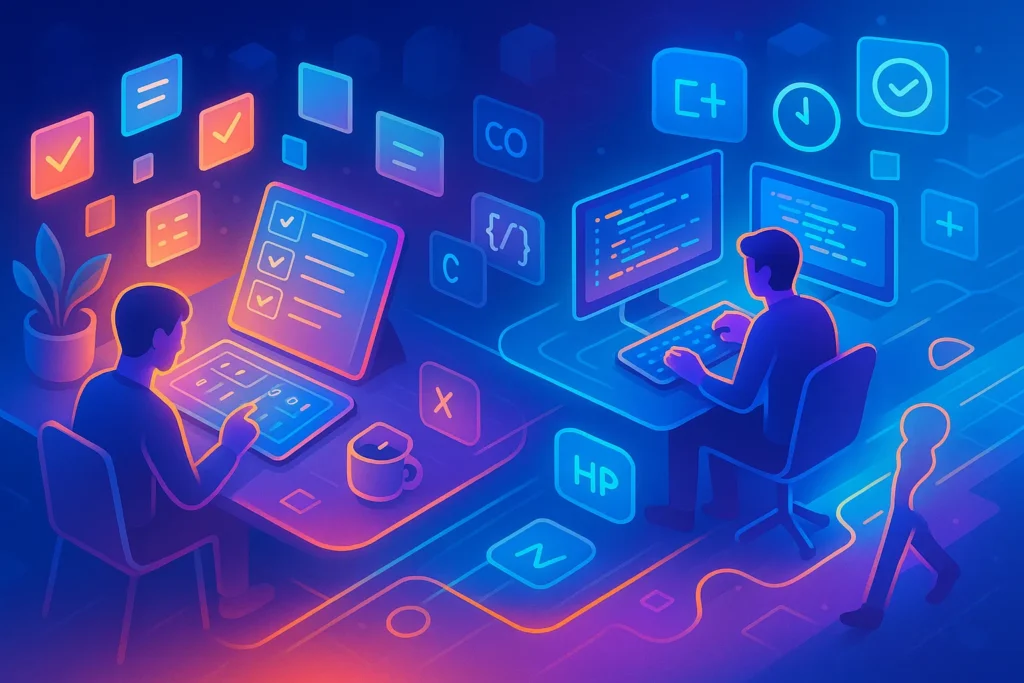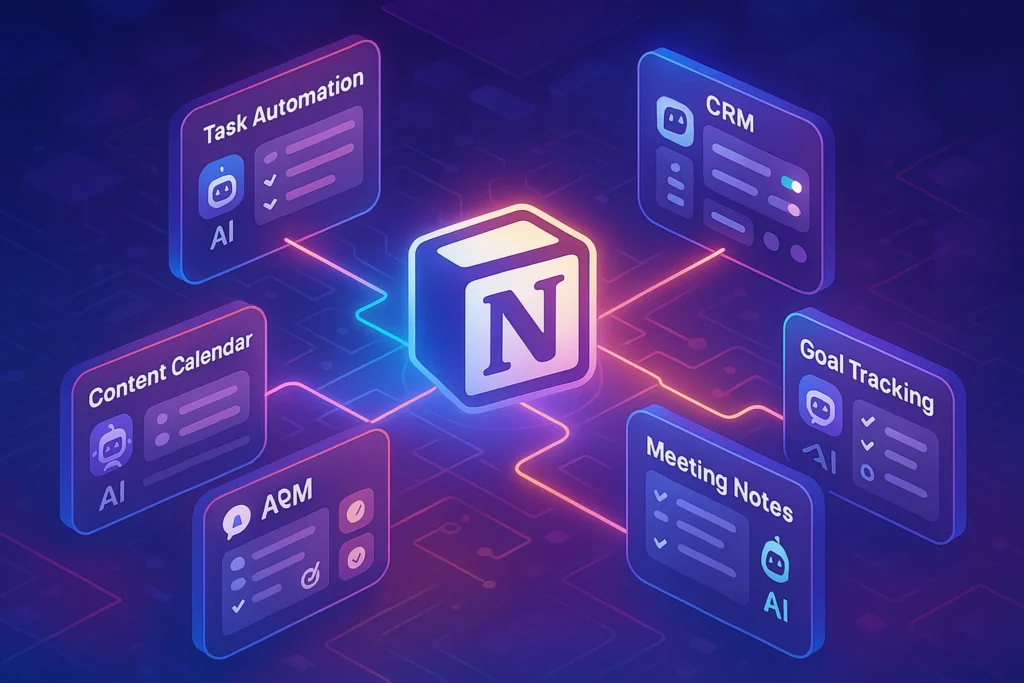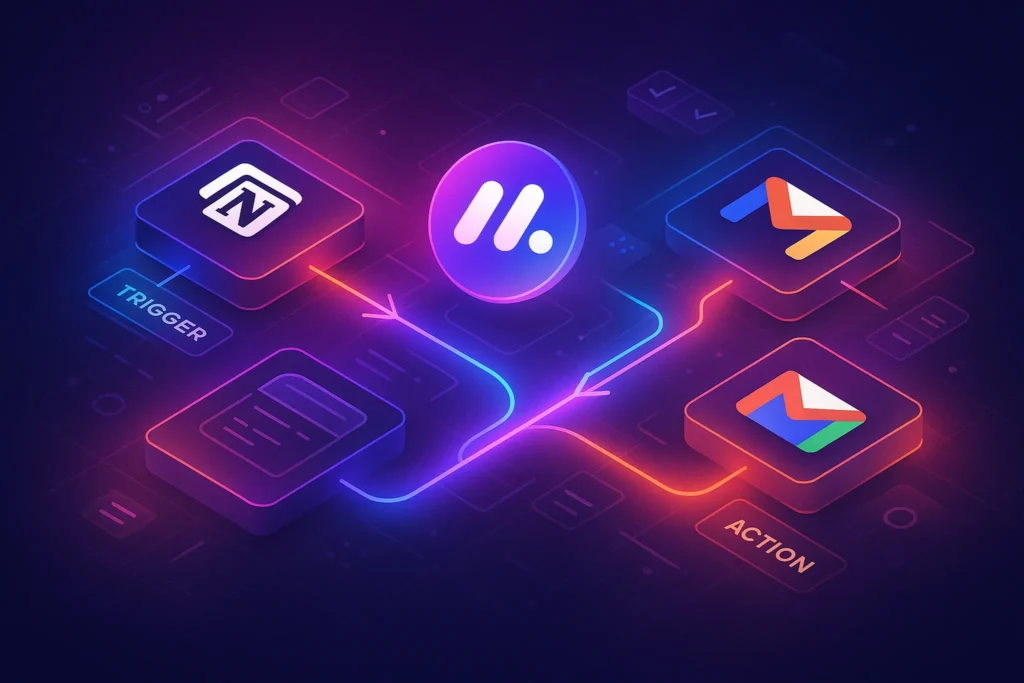🌐 Introduction: Why Habits Trump Hacks
When it comes to productivity, tech professionals know it isn’t about downloading the latest app or chasing a shiny hack. True efficiency is built on consistent habits that align with energy, focus, and workflow. A CEO’s early morning planning ritual, a developer’s reliance on keyboard shortcuts, or a designer’s practice of taking walking meetings—these are the small routines that separate the average from the exceptional.
At NerdChips, we’ve explored plenty of tools and systems—from Top Productivity Hacks Backed by Science to Advanced Keyboard Shortcuts Every Power User Should Know. But this article isn’t about apps—it’s about the behaviors that power them. Habits, not hacks, drive long-term success.
💡 Nerd Tip: Apps change, but habits endure. Build routines that can outlast any tool.
📅 Daily Planning Rituals
One of the most consistent patterns among high-performing professionals is how they start their day. Productive people rarely dive into tasks without a clear roadmap. They set aside 15–20 minutes in the morning—or sometimes the night before—to define priorities.
Jack Dorsey, former Twitter CEO, was known for time-blocking his entire day into five-minute increments. Developers often use simpler versions of this, jotting down their “top three” to maintain focus amid endless tickets. The ritual doesn’t just create clarity—it saves decision energy, reducing the cognitive load throughout the day.
Harvard research shows that workers who plan their day in advance gain an average of 90 minutes of effective output daily, compared to those who don’t.
For deeper strategies, see our guide on How to Plan Your Week Like a Pro. It complements this habit by scaling daily rituals into weekly arcs.
💡 Nerd Tip: Never start your day with an inbox. Start with a plan.
⌨️ Mastery Through Keyboard Shortcuts
Ask any developer or designer at the top of their game, and you’ll notice they fly through interfaces without touching a mouse. Keyboard shortcuts aren’t just tricks—they’re multipliers of momentum.
Paul Graham once wrote that programmers value flow above all else. Shortcuts maintain that state by eliminating micro-delays. A survey by Stack Overflow revealed that developers who consistently use shortcuts save seven hours per month—nearly an extra workday.
If you want to deepen this practice, explore our breakdown of Advanced Keyboard Shortcuts Every Power User Should Know. But remember: the habit is not about memorizing them all at once—it’s about integrating them one at a time until they become muscle memory.
💡 Nerd Tip: Pick one shortcut per week to master. By year’s end, you’ll be 50+ faster moves ahead.
🚶 Walking Meetings & Movement Habits
Steve Jobs was famous for holding walking meetings, and modern tech pros are reviving the practice. Walking sparks creativity, enhances blood circulation, and reduces the stress of back-to-back Zoom calls.
Research from Stanford found that walking boosts creative output by 60% compared to sitting. For developers, who often wrestle with cognitive bottlenecks, a 10-minute walk can unblock complex problems faster than an hour staring at code.
Walking meetings also transform team dynamics. Instead of rigid conversations across a conference table, colleagues move in sync, fostering natural dialogue. In hybrid teams, even solo walking calls can keep energy levels high.
💡 Nerd Tip: If a meeting doesn’t require slides, take it outside. Creativity thrives in motion.
🛌 Respecting Energy Peaks
Not all productivity happens at 9 a.m. Some of the most prolific developers identify as night owls, producing their best code after midnight. Others thrive in early mornings before Slack notifications flood in.
The key habit is recognizing personal chronotype and aligning work accordingly. A survey of 2,000 workers by Sleep Foundation revealed that night owls performed better on creative tasks, while early birds excelled in planning and execution.
Our piece Night Owl vs. Early Bird: Tailor Your Productivity to Your Energy Peaks dives deeper, but the takeaway is simple: highly productive tech pros don’t fight their biology—they design around it.
💡 Nerd Tip: Track your natural focus peaks for one week. Then align your hardest work to those windows.
🔒 Deep Work Windows
Distraction is the enemy of craftsmanship. The most productive tech professionals carve out sacred windows of deep work. This could mean 90 minutes without Slack, two hours of coding with notifications silenced, or simply putting on noise-canceling headphones as a signal to colleagues.
Cal Newport popularized the term, but tech veterans have practiced it for decades. Google’s engineers used to block “No Meeting Wednesdays” to protect focus. Data supports the method: Microsoft found that workers in deep focus produce 23% higher-quality output than those juggling multiple inputs.
For strategies to master this discipline, check out Deep Work 101: Finding Focus in a Noisy World. It complements the habits shared here by teaching you how to enforce focus boundaries.
💡 Nerd Tip: Don’t wait for quiet. Create it. Schedule your deep work like a non-negotiable meeting.
📚 Mini Case Study: The Developer Who Cut Meetings by Half
A senior developer at a Berlin startup adopted three habits simultaneously: blocking mornings for deep work, shifting team updates to async tools, and taking afternoon walking calls. Within one quarter, he cut his weekly meeting hours from 15 to 7. The result? He shipped two extra features per sprint while reporting lower stress levels.
This case underscores the multiplier effect: habits don’t just save time—they compound impact.
⚠️ Failure Insight: When Habits Collapse
Not every attempt succeeds. A group of engineers tried to adopt “no email before noon” but failed because leadership continued sending urgent morning requests. Without alignment, the habit collapsed within weeks.
The lesson? Habits require supportive environments. The most productive tech pros don’t just build habits individually—they advocate for cultural change within teams.
📬 Want More Smart Productivity Tips Like This?
Join our free newsletter and get weekly insights on productivity, future-of-work strategies, and tech routines—delivered straight to your inbox. No fluff. Just actionable habits for tech pros.
🔐 100% privacy. No noise. Just value-packed insights from NerdChips.
📊 Comparison Snapshot: Tools vs. Habits
| Focus | Tools-Centric Approach | Habit-Centric Approach |
|---|---|---|
| Planning | Calendar apps, task software | Daily planning rituals |
| Speed | New productivity apps | Mastering shortcuts and workflows |
| Energy | Pomodoro timers | Aligning work with energy peaks |
| Collaboration | Slack threads, project boards | Walking meetings, async rituals |
| Focus | Noise-canceling apps | Deep work blocks |
🎯 Strategic Takeaways
Habits outperform hacks. Apps amplify behavior, but routines shape output.
Consistency compounds. Small daily rituals create exponential productivity.
Alignment wins. Work with your biology, not against it.
🗣️ User Perspective
On X, one developer wrote: “Learning one shortcut per week changed my workflow more than any app. Momentum stacks.”
On Reddit, a tech lead shared: “Deep work is the only way I actually move projects forward. Meetings fill calendars, but focus builds products.”
Real voices confirm what research proves: it’s the behaviors, not just the tools, that fuel long-term productivity.
⚡ Ready to Build Smarter Workflows?
Explore AI workflow builders like HARPA AI, Zapier AI, and n8n plugins. Start automating in minutes—no coding, just creativity.
📚 Mini Case Study: From Burnout to Breakthrough
A mid-level developer at a fintech startup in London struggled with constant burnout. He would begin each day reacting to Slack messages and ended up coding late into the night without a sense of direction. After working with a mentor, he adopted three habits: morning daily planning, strict two-hour deep work windows, and walking meetings in the afternoons. Within two months, his output doubled—he shipped features ahead of schedule while reducing overtime. His manager reported a 30% increase in code quality and fewer bug reports. The shift didn’t come from new tools; it came from a disciplined change in personal rituals.
⚠️ Failure Insight: When Habits Overload Backfires
Not every attempt to build habits succeeds. A startup team in Berlin tried to overhaul their entire routine overnight—introducing morning planning, Pomodoro timers, daily journaling, walking meetings, and energy tracking simultaneously. The result was chaos. Within three weeks, half the team abandoned the system, and morale dropped. The failure wasn’t in the habits themselves but in trying to layer too many at once.
Lesson: Habits succeed when adopted incrementally. Highly productive tech pros focus on one habit at a time, letting it stick before adding the next.
📊 Benchmark Data: What the Numbers Say
According to a Gallup 2024 workplace survey, employees who use time-blocking and daily planning rituals report 21% higher productivity than peers without structure. McKinsey research adds that developers who practice deep work deliver projects 30% faster than those who constantly multitask. Meanwhile, a Sleep Foundation study found that aligning work with personal energy peaks improves cognitive performance by up to 19%.
These numbers confirm what we observe anecdotally: productivity habits aren’t soft skills—they have measurable impact.
🔄 Comparison Snapshot: Surface Habits vs. Master Habits
| Focus Area | Surface-Level Habits | Master-Level Habits Used by Tech Pros |
|---|---|---|
| Task Management | Writing a long to-do list | Defining “Top 3” priorities through planning rituals |
| Speed | Occasionally using shortcuts | Embedding shortcuts into daily workflows |
| Energy | Working whenever tasks arrive | Scheduling deep work at natural energy peaks |
| Meetings | Back-to-back Zoom calls | Walking or async meetings to preserve focus |
| Focus | Checking notifications constantly | Blocking 90-minute distraction-free windows |
🧘 Health & Energy Layer: The Overlooked Habit
Behind every productive professional lies a foundation of health. Sleep, nutrition, and micro-breaks directly shape cognitive stamina. A study from the American Psychological Association found that workers who take five-minute breaks every 60–90 minutes report 25% more sustained focus. Similarly, consistent sleep routines increase problem-solving accuracy by up to 20%.
Productive tech pros respect their physiology as much as their calendars. They hydrate, protect posture with ergonomic setups, and consciously log off before exhaustion sets in. Habits aren’t just mental—they’re physical too.
🧠 Nerd Verdict
The most productive tech professionals don’t chase hacks—they master habits. They protect energy, design rituals, and commit to deep work. Tools may change every year, but these behaviors endure. If you want to join the ranks of highly productive pros, start with small daily shifts and let them compound.
NerdChips believes the future of productivity isn’t about more software—it’s about the discipline of consistent habits, amplified by the right tools.
❓ Nerds Ask, We Answer
💬 Would You Bite?
Which habit would transform your output more right now: planning your day before it starts, or carving out deep work windows?



